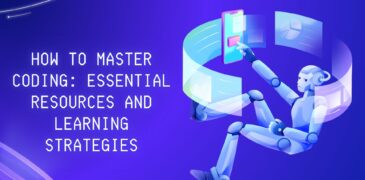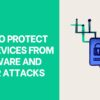Mastering coding requires more than just learning syntax; it’s about cultivating problem-solving skills, creativity, and a deep understanding of algorithms and data structures. This journey demands the right resources and strategies. In this guide, we’ll explore essential resources, from online courses to textbooks, coding platforms to community forums, to help you navigate the vast landscape of programming languages and frameworks. Moreover, we’ll delve into effective learning strategies, such as project-based learning, spaced repetition, and deliberate practice, to optimize your coding journey. Whether you’re a beginner or an experienced programmer aiming for mastery, this guide will be your roadmap to success in the world of coding.
Introduction to Mastering Coding
Mastering coding is a multifaceted journey that extends far beyond simply learning programming languages. It encompasses a deep understanding of syntax, algorithms, data structures, and problem-solving techniques. In today’s digital age, proficiency in coding is increasingly valuable across various industries, from software development to data analysis and beyond. However, navigating the vast landscape of programming languages, tools, and resources can be daunting.
This guide aims to provide a comprehensive roadmap for individuals seeking to master coding. We will explore essential resources, including online courses, textbooks, coding platforms, and community forums, to facilitate your learning journey. Additionally, we will delve into effective learning strategies such as project-based learning, spaced repetition, and deliberate practice, to help you optimize your learning experience.
Understanding the Essentials: Syntax, Algorithms, and Data Structures
Syntax:
Syntax forms the foundation of any programming language. It dictates the rules and structure for writing code. Mastery of syntax involves understanding the correct usage of keywords, operators, variables, and control structures. It’s akin to learning the grammar and vocabulary of a spoken language. A solid grasp of syntax enables programmers to express their ideas effectively and efficiently in code, thereby creating functional and readable programs.
Algorithms:
Algorithms are step-by-step procedures or instructions for solving computational problems. They are fundamental to computer science and form the backbone of software development. Proficiency in algorithms involves not only understanding common algorithms like sorting and searching but also being able to analyze problem requirements and devise efficient solutions. Learning algorithms enhances problem-solving skills and equips programmers with the tools to tackle complex problems systematically.
Data Structures:
Data structures are mechanisms for organizing and storing data in a computer’s memory. They provide efficient ways to access, manipulate, and manage data. Common data structures include arrays, linked lists, stacks, queues, trees, and graphs. Mastery of data structures involves understanding their properties, operations, and use cases. Choosing the appropriate data structure is crucial for optimizing program performance and memory usage. Proficient knowledge of data structures enables programmers to design elegant and scalable solutions to a wide range of computational problems.
Essential Resources for Learning:
Online Courses:
Online courses offer a structured approach to learning coding, providing video lectures, interactive exercises, and assignments. Platforms like Coursera, Udemy, and Codecademy offer courses on a wide range of programming languages and topics, catering to learners of all levels. These courses often feature experienced instructors, real-world projects, and peer-to-peer support, making them an excellent choice for self-paced learning.
Textbooks and Reference Materials:
Textbooks and reference materials provide comprehensive coverage of programming concepts, syntax, and best practices. They serve as valuable resources for in-depth understanding and serve as handy references for quick lookup. Books like “Introduction to Algorithms” by Cormen, Leiserson, Rivest, and Stein, or “The Pragmatic Programmer” by Andrew Hunt and David Thomas, are popular choices among aspiring programmers seeking to deepen their knowledge.
Coding Platforms and Practice Websites:
Coding platforms and practice websites offer hands-on coding experience through coding challenges, projects, and competitions. Platforms like LeetCode, HackerRank, and CodeSignal provide a variety of coding problems categorized by difficulty and topic. Solving these challenges not only reinforces programming skills but also improves problem-solving abilities and algorithmic thinking.
Community Forums and Coding Communities:
Community forums and coding communities provide opportunities for networking, collaboration, and peer learning. Websites like Stack Overflow, Reddit’s r/learnprogramming, and GitHub foster vibrant communities where programmers can ask questions, share knowledge, and seek advice. Engaging with these communities allows learners to connect with experienced developers, gain insights into industry trends, and receive feedback on their code.
Effective Learning Strategies:
Project-Based Learning:
Project-based learning involves working on real-world projects to apply and reinforce coding skills. By tackling projects, learners gain practical experience and a deeper understanding of programming concepts in context. Projects can range from building simple applications to contributing to open-source projects or creating personal portfolio websites. Project-based learning fosters creativity, problem-solving skills, and a sense of accomplishment, making it a powerful strategy for mastering coding.
Spaced Repetition:
Spaced repetition is a learning technique that involves revisiting and reviewing material at increasing intervals over time. It leverages the spacing effect, which suggests that information is better retained when learned repeatedly over spaced intervals. Using spaced repetition algorithms, learners can optimize their study schedules and reinforce coding concepts efficiently. Tools like Anki, Quizlet, and Memrise automate spaced repetition, allowing learners to review coding syntax, algorithms, and data structures effectively.
Deliberate Practice:
Deliberate practice involves focused, structured practice aimed at improving specific skills. It entails breaking down complex tasks into smaller, manageable components and systematically working on improving each component. For coding, deliberate practice may involve solving coding challenges, implementing algorithms, debugging code, or refactoring existing projects. By identifying weaknesses, setting clear goals, and receiving feedback, learners can accelerate skill development and achieve mastery in coding.
Tailoring Your Learning Path:
Choosing the Right Programming Language(s):
Selecting the appropriate programming languages to learn is crucial for tailoring your learning path. Consider factors such as your career goals, industry trends, and project requirements. For example, if you’re interested in web development, languages like JavaScript, HTML/CSS, and frameworks like React or Angular might be essential. For data science, Python and R are commonly used. Additionally, consider learning languages with versatile applications, such as Python or Java, to broaden your skill set and adapt to different projects and opportunities.
Setting Clear Goals and Milestones:
Setting clear, achievable goals and milestones is essential for guiding your learning journey. Define specific objectives, such as building a personal portfolio website, completing a coding project, or obtaining a certification. Break down these goals into smaller, actionable steps and set deadlines to track your progress. By establishing measurable milestones, you can stay motivated, track your accomplishments, and adjust your learning path as needed.
Building a Personalized Curriculum:
Developing a personalized curriculum tailored to your learning objectives and preferences is key to maximizing your learning efficiency. Identify core concepts, tools, and skills relevant to your goals and prioritize them in your curriculum. Incorporate a mix of resources such as online courses, textbooks, coding challenges, and projects to ensure a comprehensive learning experience.
Challenges and Overcoming Obstacles:
Dealing with Frustration and Imposter Syndrome:
Coding can be inherently challenging, leading to frustration and feelings of inadequacy, commonly known as imposter syndrome. Recognizing that setbacks and struggles are normal parts of the learning process is crucial. Practice self-compassion and remind yourself that everyone, regardless of experience, encounters difficulties in coding. Break tasks into smaller, manageable steps, celebrate small victories, and focus on progress rather than perfection.
Seeking Help and Mentorship:
Seeking help and mentorship is a valuable strategy for overcoming obstacles and accelerating learning in coding. Don’t hesitate to reach out to peers, instructors, or experienced programmers when facing challenges or needing guidance. Online forums, coding communities, and mentorship programs offer opportunities to connect with individuals who can provide insights, advice, and support.
Embracing Continuous Learning and Adaptation:
Coding is a rapidly evolving field, requiring continuous learning and adaptation to stay relevant. Embrace a growth mindset and approach challenges as opportunities for learning and improvement. Stay curious, explore new technologies, and seek out opportunities to expand your skill set.
Putting Knowledge into Action: Building Projects and Contributing to Open Source
One of the most effective ways to solidify your coding skills and make a meaningful impact is by putting your knowledge into action through building projects and contributing to open source.
- Building Projects: Building projects allows you to apply your coding knowledge to real-world problems, giving you hands-on experience and reinforcing concepts learned through tutorials and courses. Choose projects that align with your interests and learning goals, whether it’s developing a personal website, creating a mobile app, or building a game. Start with small, achievable projects and gradually increase complexity as you gain confidence and expertise. Projects provide opportunities to experiment, problem-solve, and showcase your skills to potential employers or collaborators.
- Contributing to Open Source: Contributing to open-source projects is a valuable way to collaborate with other developers, contribute to the community, and gain experience working on large-scale projects. Begin by exploring open-source repositories on platforms like GitHub and identifying projects that interest you. Start with simple tasks such as fixing bugs, improving documentation, or adding features.
Conclusion: Empowering Your Journey to Mastery
In conclusion, mastering coding is a journey empowered by dedication, resourcefulness, and continuous learning. By leveraging essential resources, effective learning strategies, and personalized learning paths, you can navigate challenges, overcome obstacles, and achieve proficiency in coding. Embrace the journey with resilience, seek support from communities and mentors, and put your knowledge into action through projects and contributions.
Also Read:







